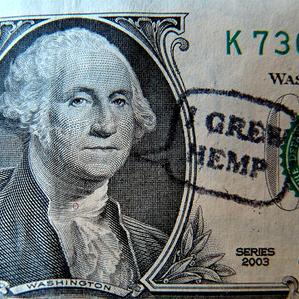 Support For Marijuana Reform Is Growing Rapidly
Support For Marijuana Reform Is Growing Rapidly
Ernest Hemingway once wrote that a man goes broke “at first, very slowly, then all at once.” That is very much what happens with outdated ideas as well.
A national Rasmussen poll last week asked 1,000 likely voters if they would support legalizing marijuana and regulating it like alcohol or tobacco.
56% of respondents were in favor, marking the highest level of support for legalization in any national poll to date. Even more interesting, only 36% of Americans opposed the idea, with 8% undecided.
This bears repeating. As of today, just 36% of Americans prefer the current prohibition to a system of outright legalization and regulation of marijuana. Let’s put that in perspective.
In October of last year, for the first time ever, according to Gallup, a majority of Americans — just over 50% — were in favor of legalization, with 46% opposed. But only six years ago, in 2006, 36% of Americans supported legalization, with 60% opposed.
That’s a complete about face of public opinion in just six years, or one and a half presidential election cycles. What’s more, if these two respected pollsters are correct, fully 10% of the American public has moved out of the Prohibitionist camp in the past seven months alone.
Something’s happening here. And fast.
Just this month, two ardent prohibitionists, Dwight Holton in Oregon and Silvestre Reyes in Texas, each lost a Democratic primary in which he was heavily favored after marijuana policy became a defining issue. This has never happened before, and would have been all but unthinkable just a couple of years ago.
Support for marijuana prohibition is crumbling so rapidly because at its core, there is no “there” there. In a nation where half of all adults have used marijuana, and 26 million adults do so more or less regularly, no one actually believes that prohibition “works.” It has been, for decades, a policy option that was more habitual than rational. But after forty years of escalating costs and diminishing returns, it seems that we have reached a tipping point. People not only see the policy as a joke, but they are coming to understand that everyone else sees it that way too, and suddenly, it is no longer cool, or smart, or easy to go along to get along.
Outdated ideas are funny things. Something that seems totally reasonable for years and years can lose credibility seemingly overnight. And as the reality of the situation takes hold, the pace and intensity of public disillusionment increases, until one day you turn around and it is quite clear, to nearly everyone, that there is nothing left to defend, and almost no one left to defend it. That is how an idea, a policy, or a regime, like a man, goes bankrupt. At first slowly, then all at once.




